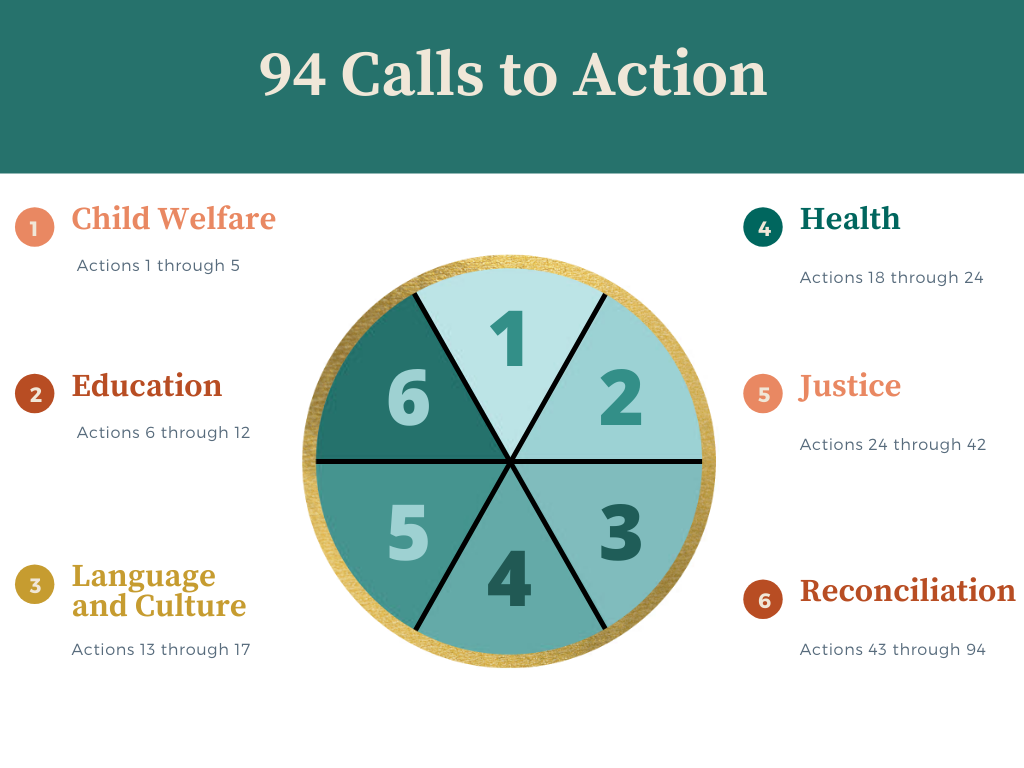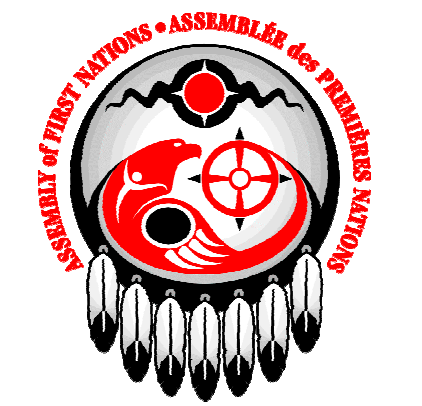This is not a comprehensive list of all the ethics documents that exist to assist researchers, teachers, universities and individuals when working with Indigenous communities. The guidelines discussed below are meant to give a broad, general understanding as to ethical topics necessary to be aware of prior to engaging Indigenous communities. Each community may have their own specific ethical guidelines, and it is our responsibility to seek them out to assure our actions are reciprocal, respectful, responsible and relevant.
Before looking at documents specifying how to engage in research, it is necessary to become familiar with two broader guiding reports:
Truth and Reconciliation 94 Calls to Action
This report is the result of one of the largest class-action lawsuits in Canada’s colonial History which was settled in 2007. The settlement agreement that was reached resulted in the creation of the Truth and Reconciliation Commission of Canada, which was comprised of a 10-member Indian Residential School Survivor Committee made up of survivors from across the country.
This commission lasted until December 18th, 2015 and in that time they gathered statements and documented truths from communities, residential school survivors, their families and anyone personally affected by residential school experiences. This report is the culmination of all of those statements, that calls on all levels of government as well as each citizen to work together to change policies and programs in a concerted effort to repair the harm caused by residential schools and move forward with reconciliation.
These 94 Calls to Action can be broken down into six categories: Child Welfare, Education, Language & Culture, Health, Justice, and Reconciliation.

[need to create a graphic that broadly discusses the subtopics in each of these sections]
You can find this document here: Truth and Reconciliation 94 Calls to Action
United Nations Declaration on the Rights of Indigenous Peoples
Introduction
You can find this document here: United Nations Declaration on the Rights of Indigenous Peoples
Guiding Ethical Documents for Research
Now that you have a broad understanding of the two documents above and how they have influenced global change regarding the ways in which Indigenous communities are engaged with, it’s important to look at specific documents that are necessary to be familiar with if you intend to do research, write about or with Indigenous peoples, or engage with Indigenous communities.
Tri-Council Policy Statement – Chapter 9: Research Involving the First Nations, Inuit and Métis Peoples of Canada
The Tri-Council Policy statement Ethical Conduct for Research Involving Humans is a foundational document for all individuals in academia who intend on doing research that is about, or involves human subjects. Chapter 9 of this document focuses entirely on building a space that recognizes that First Nations, Inuit and Métis communities have unique histories, cultures and traditions, and that there needs to be a space for dialogue on common interests and points of difference between researchers and Indigenous communities engaged in the research.
[create graphic that simplifies this document]
You can find this document here: Chapter 9: Research Involving the First Nations, Inuit and Métis Peoples of Canada
Assembly of First Nations: First Nations Ethics Guide on Research and Aboriginal Traditional Knowledge

This resource was created in recognition that interest in Indigenous Knowledge is growing momentum, and there are challenges in determining best practices in the ethical use of this knowledge. This new paradigm shift in policy and inquiry requires a new ethical process to lay the foundation for working with Indigenous knowledge and with Indigenous communities.
This guideline is not an official position of the Assembly of First Nations, but aims to provide guidance for government agencies, organizations, researchers, First Nation governments and Indigenous communities.
The Core Principles of this document include:


You can find this document in full here: First Nations Ethics Guide on Research and Aboriginal Traditional Knowledge
The First Nations Principles of OCAP
This document establishes how First Nations Data and Information must be collected, protected, used or shared ethically within research. This tool supports First Nations data sovereignty by clearly outlining ethics regarding ownership, control, access, and possession.
Toolbox of Research Principles in an Aboriginal Context
Negotiating Research Relationships with Inuit Communities
https://www.nri.nu.ca/sites/default/files/public/files/06-068%20ITK%20NRR%20booklet.pdf
First Nations in Quebec and Labrador’s Research Protocol
https://achh.ca/wp-content/uploads/2018/07/Protocol_FN-Research-Protocol-in-Labrador-and-Quebec.pdf
Program and Topic Specific Ethical Guidelines
Aside from those listed above, there are also multiple program and topic specific guidelines.